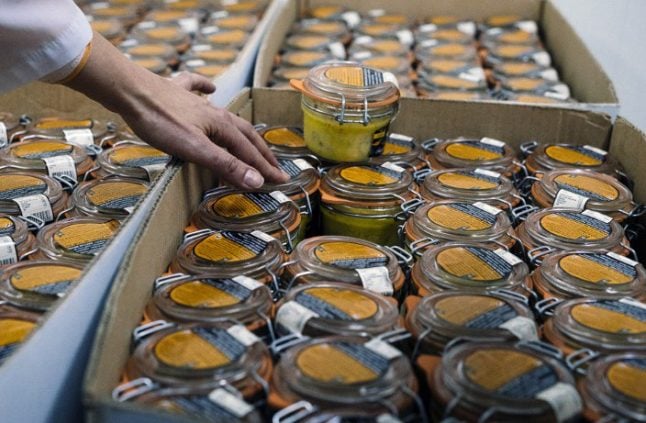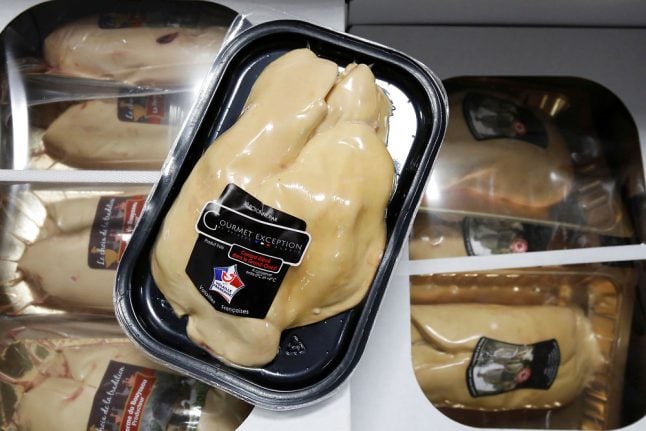France is the top producer and consumer of the controversial delicacy. Foie gras is fundamental to a traditional Gallic Christmas dinner and France has made a habit of stocking up its own inventories with cheaper versions from Bulgaria and Hungary.
At Bulgaria's largest factory near the southern village of Milevo, dozens of women nimbly sort, clean, devein, and pack hundreds of kilos of duck livers that have come straight from the slaughterhouse.
Other workers cook and can glazed duck confit.
Virtually unknown at local Christmas dinner tables, the bulk of Volex's production will go to France.
The labels of big French brands are placed directly on the jars before they even leave the factories, although the country of origin is also indicated.
This year, Bulgaria and Hungary estimate that sales in newer markets could shoot up by around 15 percent as French exports outside the EU have been hit by repeated bird flu scares.
“If 10 years ago we sold 100 percent of our produce to France, now this share is about 80 percent,” Volex factory owner Plamen Chelebiev told AFP.
For the past four years, his sales have been increasing in Switzerland and Japan, and more recently also in Vietnam and Thailand.
“In these markets we sell our products under our own brand names and at much higher prices, which makes it more interesting for us,” Chelebiev said.
But Volex is also doing well inside the EU.
In Spain and Belgium, “we're now selling our products without passing via France,” Chelebiev added.
Bulgaria and Hungary entered the lucrative trade in the 1990s by modernising large cooperative farms from communist times and using cheap hand labour.
Since then, Bulgaria has become the world's largest maker of duck foie gras after France, while Hungary holds a quasi monopoly on fattened goose liver.
Even French producers have expressed concern over the growing competition.
“A part of Bulgaria and Hungarian products are going to third countries whose markets remain closed to us,” Marie-Pierre Pe, the director of French foie gras makers' group CIFOG, said earlier this year.
“The quality of our raw foie gras is the same as in France and even better, due to the good conditions during the raising of the birds,” according to Volex.
But all this notwithstanding, neither Bulgaria nor Hungary have the capacity to conquer traditional French markets.
Although the bird flu crisis has slashed 25 percent of France's exports in 2016, the country has massive stocks due to overproduction in previous years.
In 2015, France produced around 19,000 tonnes of foie gras, while Bulgaria came a distant second with 2,500 tonnes and Hungary third with 2,000 tonnes.
France's exports stood at 5,000 tonnes in 2015. By comparison, Bulgaria and Hungary together sell between 3,000 and 4,000 tonnes abroad annually, according to data from producers' organisations.



 Please whitelist us to continue reading.
Please whitelist us to continue reading.
Member comments